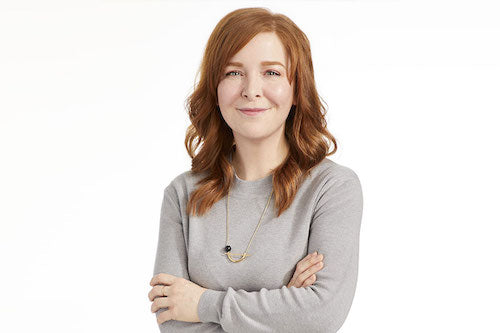Sleep: It’s a favorite pastime for some, the source of a bundle of nerves for others, and a field of study that hooked NYC-based psychologist Dr. Andrea Lopez-Yianilos early on. “I was an undergrad student when I stumbled across working at a sleep lab,” she says. “I’d never given much thought to what the body and brain do after we drift off.” Now a behavioral sleep medicine expert, Lopez-Yianilos helps clients with insomnia (and other mental health issues). If your sheep-counting routine is off-course, try her tips on getting the best rest.
Our brains are very, very active: During REM sleep, memory consolidation is happening, meaning that everything that we’ve picked up during the day is getting sorted through and stored. And our bodies are repairing muscles — we need sleep in order to recover from workouts, for example.
The most common is the idea of needing eight hours. I use the analogy that while you and I may be the same height, it doesn't necessarily mean we have the same shoe size. Sleep is similar: One person might need as few as 4 hours up to as many as 10 or even 12 hours — though most commonly, it’s between 7 and 9. To find your ideal number, track how you sleep on vacation when you’re not setting an alarm. How many hours do you need to feel rested when you wake up? Try to observe that consistently over a week or two. If you only need six or seven hours, trying to reach eight can be really frustrating, because your body doesn't need it.
There’s also a myth about being able to make up sleep on the weekends. Week over week, though, looking at the data, those few extra hours on Saturday or Sunday still don’t make up for what you’ve lost during the rest of the week. And chronic sleep deprivation raises levels of cortisol, the hormone that spikes during fight-or-flight mode. Consistently high levels in your body can lead to long-term health issues.
First, only use your bed for the three S's: sleep, sex, and if you're sick. Eating, being on your phone, or using your laptop in bed will all disrupt your sleep. Diet is also so important. Avoid heavy meals late at night—they give your digestive system lots of work to do, which could cause disturbances—and avoid alcohol three hours before bed, to allow your body time to metabolize it.
I also have my clients with insomnia follow a plan based on cognitive behavioral therapy. It starts with creating a buffer zone of about 30 to 45 minutes before bedtime where you're giving yourself cues about winding down: practicing self-care, setting down your phone for the night, turning off the TV. Do this very consistently, and you can correct your sleep in as little as two to four weeks. Then if you want, you can slowly add things like TV or wine back in and see if your sleep stays satisfying. If there’s a future stressor that jump-starts your insomnia again, you already know what to do. And ultimately, it’s so important to note that often, frustration about poor sleep only fuels the lack of sleep even more. Take some pressure off yourself.

